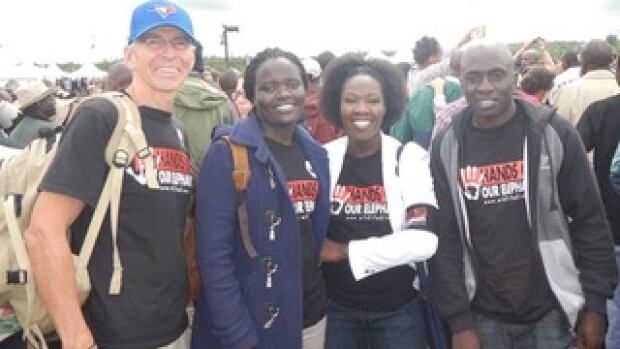
Retired N.B. police officer now covers the war against poaching in Kenya
CBC
Chris Morris of Rothesay first went to Africa around 2007 on secondment to help with the war crimes investigation of former Liberian president Charles Taylor.
While there, he learned about another issue that gripped his conscience — wildlife poaching.
In his retirement from the Saint John Police Force, Morris returned to Africa, and he now spends his time covering court cases of alleged poachers in Kenya.
There are four "major" ivory trafficking prosecutions going on in the Mombasa area, said Morris, which is about a 30-minute drive north of his home in Diani Beach.
The 66-year-old travels to court every time there's a hearing or adjournment, reports on it and shares the information with an organization called SEEJ, for Saving Elephants through Education and Justice.
It takes a long time for a case to get through the court system, he said.
"One of the ones that I'm watching right now that started in 2015, there have been over 60 sittings in that case. And we probably still have another year to go."
The cases are related to seizures, some of which took place in Mombasa. Others were in Thailand and Singapore, he said, but the ivory came from Kenya.
"We're talking three tons of ivory in each seizure," Morris said.
Ivory is a status symbol in Chinese culture, he said.
"Kind of like BMWs and Mercedes here."
Ivory is also considered a good luck charm by some.
"Wildlife trafficking now is seen as the number four moneymaker for organized crime," he said, "behind drug trafficking, human trafficking and arms dealing."
Two tusks from an elephant shot in a reserve in Tanzania, he said, might be smuggled to Uganda, where they are put in shipping containers and sent to Mombasa, then on to Singapore or Hong Kong and Vietnam or China.













